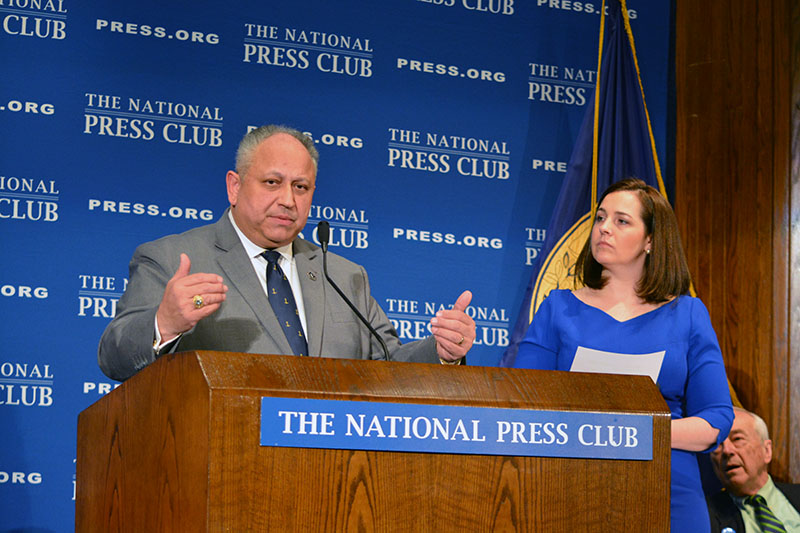Del Toro outlined steps the US is taking to meet the China challenge, including the start of construction on an advanced class of nuclear ballistic submarine, stronger alliances with allies in the Pacific and elsewhere, bolstering forward bases, and investment in drone, laser and artificial intelligence technology. He cited drone operations by the US 5th Fleet in the Middle East with deterring the shipment of arms from Iran and serving as a model for detecting illegal fishing operations by China. He said the US, United Kingdom and Australia will soon be announcing the next step in advancing Australia's nuclear submarine program.
The Secretary said the military needs public support to increase spending on the US industrial base, including upgrading the nation's four naval shipyards. China, by comparison, has 13 shipyards, one of which, Del Torro said, is bigger than all of the US Navy's. He called for rethinking US, immigration policy to permit more legal immigrants to fill critical construction and engineering jobs.
Del Toro, a Naval Academy graduate who became the 78th Secretary of the Navy on Aug. 9, 2021, said the US Navy is essential to the world's economic prosperity.
"It is thanks to our presence in international waters that commerce has boomed in the last half-century all over the world—and with those increased levels of trade have come improved economic prospects, higher standards of living, and greater opportunities for greater numbers of people, not just in the United States, but in all nations that participate in free and open trade," he said.
He noted that "90% of what Americans order online or purchase in stores, unless it’s made in the United States, gets to them by sea."
A retired Navy commander who came to the US from Cuba as a child, Del Toro said the Navy also "plays a crucial role in protecting undersea cables," which account for 99% of international data transmission. "Our ability to monitor and secure these cables is just one of the many ways America and indeed the entire planet depend on us — sometimes without even realizing it."
Del Torro closed his formal remarks with a tribute for former President and Navy officer Jimmy Carter. The 98-year-old entered hospice care over the weekend. "I wish to extend our collective thanks to President Jimmy Carter, who has led an extraordinary life, a life of service admired around the world," he said. "That service began 80 years ago as a midshipman at the US Naval Academy. We wish him fair winds and following seas on the next phase of his great journey."

